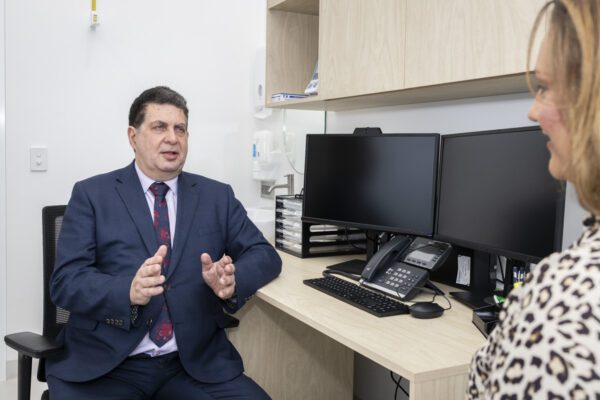A high percentage of doctors are burnt out in 2021 as a direct result of job pressures, disproportionate working hours, and minimal work-life balance, according to a number of recent surveys.
A 2021 study conducted across 10 countries, including Australia, showed 97% of participating doctors and 99% of participating nurses confirmed they felt burnt out at least once in their career, and 88% agreed that COVID-19 had exacerbated feelings of exhaustion.
“It’s no surprise that our medical personnel are burnt out,” The Banyans Health and Wellness Registered Psychologist Nadine Missenden says.
“Medical professionals have been under an extraordinary amount of pressure in the last two years, and have sacrificed personal time, relationships, and their own mental health in order to provide care to others.”
Across the world, medical practitioners are reporting alarmingly high rates of stress and burnout.
The international study examined burnout exposure and the mental health of practitioners, included nurses, and revealed widespread exhaustion.
GPs suffer from burnout
Almost three out of five, or 58% of Australian nurses and doctors who responded to the survey, said their jobs leave them feeling burnt out. Despite these high numbers, Australia ranks among the countries with the lowest national figures in regard to doctors suffering burnout.

Alarmingly high numbers of doctors are reporting that they are experiencing burnout in 2021.
In the United States, a September 2021 study showed 80% of general practitioners are currently burnt out, but 78% were not planning to seek professional help or counselling. Of the surveyed GPs, almost four out of five have wanted to quit practising medicine due to feelings of burnout.
A 2021 Chinese study of 1,122 doctors and nurses found 71.3% of all doctors and 68.3% of all nurses were deemed to be living with burnout symptoms.
An October 2021 RACGP article, COVID strain taking a major toll on GPs, reviewed a poll taken by newsGP and found that from 1,465 respondents, 38% reported that working as a GP during the pandemic had ‘greatly’ affected their mental health.
The same article noted that in May 2021, nearly half of all respondents to a poll run by newsGP ranked avoiding burnout as their main priority over the next 12 months.
Why is burnout affecting our doctors and nurses?
Looking after other people and solving health problems in itself is stressful. Our medical professionals are under significant time pressure and their busy workdays often include long periods of emotional intensity.
Add to that an ageing population, a global pandemic, complex patients, electronic health record stress, increased bureaucracy, and red-tape, longer hours, and financial pressures, and it is no wonder our medical staff are suffering burnout.
Doctors can often be perfectionists and these perfectionist tendencies can contribute to burnout symptoms, even prior to COVID-19.
“Physicians, nurses and other health care workers are caring professionals, and with the increasing demands they are facing, they are also more at risk of experiencing compassion fatigue,” says Nadine. “Workplace stressors, including bullying, rostering requirements, and being constantly in high pressure situations, coupled with personal financial stress are increasingly leading to burnout.”

There is a statistically significant negative correlation between empathy and patient-related burnout, which suggests that empathy reduces as patient-related burnout increases.
How doctor burnout affects everyone
Medical practitioner burnout can also pose a threat to patient safety and the quality of care if staff are de-personalising patients in a bid to cope.
Burnout can lead to poor interactions with patients when the practitioners suffer from diminished attention, impaired memory, and decreased executive function.
The RACGP article notes the authors of a study published in the New Zealand Medical Journal found “a statistically significant negative correlation between empathy and patient-related burnout, which they said suggests that empathy reduces as patient-related burnout increases”.
What is burnout?
Burnout describes the feeling of long-term exhaustion, both mental and physical. It is a long-term stress result marked by emotional exhaustion, de-personalisation, and a lack of sense of personal accomplishment. Burnout can be caused by excessive and prolonged stress, and makes you feel overwhelmed and drained.
Burnout can feel like you’ve had the life sucked out of you.
Often burnout can make it seem impossible to undertake simple daily tasks.
Experiencing burnout can make you feel as though you are incapable of caring about what is important to you. It can seem impossible to be motivated or to make an effort.
Burnout symptoms and signs
Burnout can drive a number of physical health symptoms including:
- dizziness;
- lethargy;
- shortness of breath; and
- chest pain.
Emotional burnout can prevent you from taking part in activities that you normally find meaningful.

Doctors experiencing burnout have sense of emptiness or lacking in emotion.
Some of the signs of burnout can include:
- feeling exhausted and unable to perform basic tasks;
- losing motivation in many aspects of your life, including your work and friendships;
- finding yourself unable to focus or concentrate on tasks;
- having a sense of emptiness or lacking in emotion;
- losing your passion and drive;
- experiencing conflict in your relationships with co-workers, friends, and family; and
- withdrawing emotionally from friends and family.
The people who help others are now in more need than ever.
What to do about burnout symptoms
By seeking help or talking to someone, you can overcome burnout.
The 2021 results should be a bump in the road caused by COVID, and not be the benchmark for which we measure GPs and other medical staff’s mental health.
“The concerns moving forward into 2022 are that workloads are continuing to increase, and the wellbeing of doctors and nurses will continue to suffer. Burnout rates could continue to get worse if practitioners don’t get the help they need,” says Nadine.
“It’s important to recognise burnout for what it is and know that help is available.”

Doctor burnout is seeing GPs and health professionals facing compassion fatigue and depersonalisation of their patients.
As we learn to live with open borders and while vaccination rates are still increasing, it’s important that doctors’ training and wellbeing needs are met before the COVID situation deteriorates further in Australia.
“We encourage every employer with medical staff to raise the matter of wellbeing and burnout with their employees and keep it as a high priority conversation in the workplace,” The Banyans Healthcare Group CEO Ruth Limkin says.
“Employers need take the lead by recognising signs of burnout in their staff and work together with each staff member to connect them to help and support to assist with their recovery.”
While most medical staff understand that professional support can help, Ruth says there is often a reluctance to acknowledge this in their own workplace.
“Employers can be role models in talking about and normalising their own need for support, which helps to remove the fear or stigma of asking for help.”
Talking therapies for burnout
Psychological and emotional therapies are critical in facilitating long-term recovery for chronic stress and burnout. Regular consultations with a psychologist and/or counsellor will enable clear identification of the drivers behind your experiences, as well as the underlying personal values.
If you or a loved one needs help, please reach out.
At The Banyans Health and Wellness, psychological and emotional therapies are used in collaboration with music therapy, art therapy and equine therapy, and guests achieve a deeper level of understanding and the ability to create a path forward.
For those who may be experiencing more than one condition, the personalised nature of each program at The Banyans Health and Wellness can incorporate elements of treatment for multiple conditions.
The Banyans Health and Wellness’ tailored, one-on-one programs are able to incorporate elements of treatment for mental health, substance misuse and abuse, trauma, and eating disorders into a program for burnout.
Getting help
If you or someone you care about would benefit from a program at The Banyans Health and Wellness or The Banyans Health Plus, please call +61 1300 BANYAN (1300 226 926) for a non-obligatory, confidential discussion or fill in our enquiry form below.





